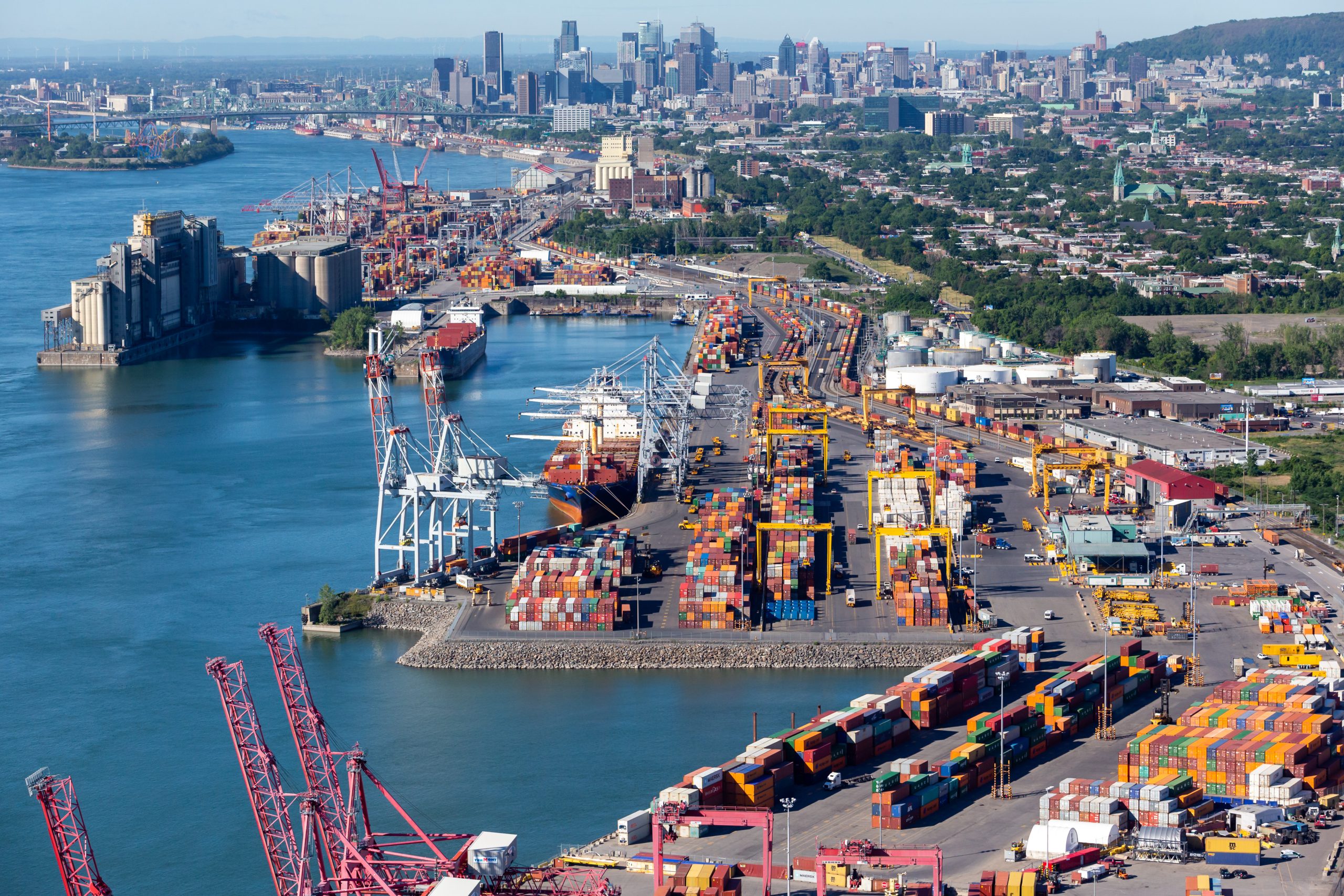After nearly 1,200 longshore workers rejected a “final offer” from employers, the Maritime Employers Association launched its threatened lockout Sunday night, bringing a virtual total halt to traffic at Canada’s second biggest port. Julie Gascon, President and CEO of the Montreal Port Authority, today warned of the economic consequences of a prolonged conflict for Montreal, Quebec and all of Canada.
“This lockout affects not only the 1,200 longshoremen directly impacted by the work stoppage, but it also impacts over 10,000 workers in the logistics sector, from trucking and railway employees to maritime agents and pilots,” she said in a statement.
“Logistics jobs are the first to be affected, which inevitably sets off a domino effect throughout the entire economy in the markets we serve.”
According to Ms. Gascon, each day of the conflict drives ships further from Canadian docks and jeopardizes jobs and revenue for businesses. With reports indicating that shipping lines are already diverting their vessels to other East Coast ports, the MPA’s CEO is concerned about Canada’s supply chain reputation as a reliable destination for goods transportation in North America.
Ms. Gascon points out that when the supply chain is disrupted, both small and large companies that rely on importing and exporting goods are forced to find alternatives that are often more costly or simply non-existent.
Marc Cadieux, President of the Association du camionnage du Québec (ACQ), emphasized that this conflict does not only affects maritime transportation but also directly impacts land transportation and the hundreds of jobs associated with it.
“Nearly 2,000 trucks move through the Port of Montreal every day. The freezing of its activities will have an immediate impact on many carriers who may have to consider layoffs. The ACQ strongly urges the responsible stakeholders to find a solution to restart commercial activities at this crucial point of global trade as soon as possible and avoid compromising our reputation on the international stage,” he stated.
The workers have been without a collective agreement since Dec. 31, 2023. The CUPE 375 union has indicated it will accept the same wage increases that were granted to its counterparts in Halifax or Vancouver — 20 per cent over four years. But scheduling and work-life balance have emerged as major issues.
Rail services to and from Montreal have been suspended since last week. Latest summary of vessels berthed and scheduled shows 15 vessels at berth still waiting to be loaded or unloaded and 17 vessels expected between now and November 17).
Meanwhile, on the West Coast, the employers and the union representing 730 foremen are also deadlocked in a labour dispute where port workers are also locked out. This has paralyzed container cargo traffic at terminals in Vancouver and Prince Rupert. Supply chain disruption and congestion is mounting- with an estimated 70 vessels at anchorage in the Port of Vancouver area and 75 more expected in the next 30 days.
Pascal Chan, Senior Director of Transportation, Infrastructure and Construction at the Canadian Chamber of Commerce, calculates the combined work stoppages impact the flow of $1.2 billion worth of goods every day. “We need to see leadership from government that puts Canadian workers and businesses first by putting an end to these disputes and getting goods flowing again as quickly as possible,” Mr. Chan said.
(Port of Montreal photo)

(Photo credit [email protected] )


